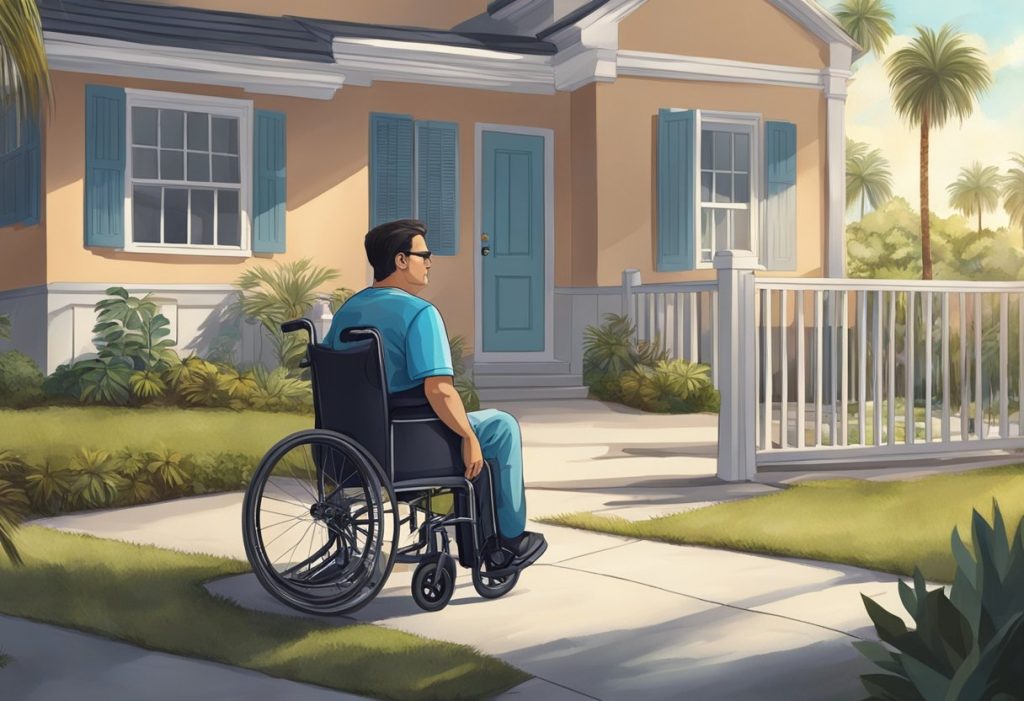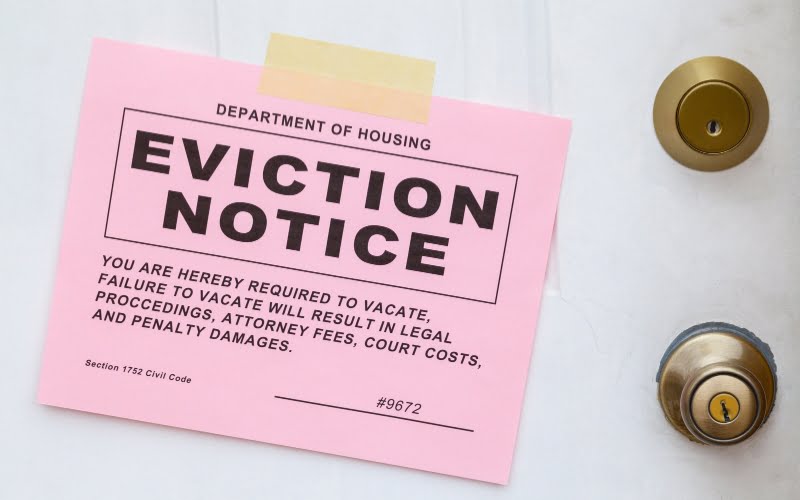Last Updated on March 18, 2024 by Kelvin Nielsen
If you’re a landlord in Florida, you may be wondering if you can legally evict a tenant who is disabled. The answer is that it depends on the circumstances.
Under the Fair Housing Act, it is illegal to discriminate against individuals with disabilities in housing. This means that a landlord cannot evict a tenant simply because they have a disability.

However, there are certain situations where a landlord may be able to evict a disabled tenant. For example, if the tenant is not paying rent or is violating the terms of their lease, the landlord may be able to begin the eviction process.
Additionally, if the tenant’s disability is causing damage to the property or posing a threat to the health and safety of others, the landlord may be able to evict them.
It’s important for landlords to understand their rights and responsibilities when it comes to evicting disabled tenants in Florida. By following the proper procedures and seeking legal guidance if necessary, landlords can ensure that they are acting within the law while protecting their property and their business.
Related Posts:
- How Much Does it Cost to Evict Someone in Florida?
- How Long Does the Eviction Process Take in Florida?
- What Happens When a Tenant Dies in Florida?
Understanding Eviction Laws in Florida
If you are a landlord in Florida, it is important to understand the eviction laws in the state. Evicting a tenant can be a complicated process, especially if the tenant is disabled.
Here are some important things to know about eviction laws in Florida.
Federal and State Protections for Disabled Tenants
Under the Fair Housing Act and the Americans with Disabilities Act, disabled tenants are protected from discrimination. This means that landlords cannot evict a tenant simply because they are disabled. However, if a disabled tenant violates the terms of their lease, the landlord may be able to evict them.
The Eviction Process and Procedures
The eviction process in Florida involves several steps. First, the landlord must give the tenant a written notice of eviction. If the tenant does not leave the property, the landlord can file an eviction lawsuit in court. If the court rules in favor of the landlord, a sheriff will give the tenant a notice to vacate the property.
Legal Grounds for Eviction
There are several legal grounds for eviction in Florida. The most common grounds are nonpayment of rent and lease violation. If a tenant fails to pay rent, the landlord can give them a notice of eviction. If the tenant violates the terms of their lease, the landlord can also give them a notice of eviction.
Related Posts:
- When Does a Guest Become a Tenant in Florida?
- Legal Reasons to Break a Lease in Florida
- Can You Kick Someone Out of Your House in Florida?
Rights and Accommodations for Disabled Tenants
Reasonable Accommodations and Modifications
As a disabled tenant in Florida, you have the right to request reasonable accommodations and modifications to ensure you have equal access to housing. Reasonable accommodations refer to changes made to rules, policies, or services to accommodate your disability.
Reasonable modifications refer to physical changes made to the property to accommodate your disability. Landlords are required to provide reasonable accommodations and modifications unless it causes an undue financial or administrative burden.
To request reasonable accommodations or modifications, you must provide your landlord with a written request. Your landlord may request medical records or proof of your disability to evaluate your request.
It is important to note that your landlord cannot deny your request based on assumptions or stereotypes about your disability.
Discrimination and Eviction Defense
Under the Fair Housing Amendments Act, it is illegal for landlords to discriminate against tenants with disabilities. This includes refusing to rent to a tenant with a disability, setting different terms or conditions, and denying reasonable accommodations or modifications.
If you believe you have been discriminated against, you can file a complaint with the U.S. Department of Housing and Urban Development.
If you are facing eviction and believe it is due to your disability, you may have an eviction defense. The Americans with Disabilities Act and the Fair Housing Amendments Act protect disabled tenants from eviction based on their disability. It is important to seek legal counsel if you believe you are being unfairly evicted.
Frequently Asked Questions
What are the legal grounds for evicting a tenant with disabilities in Florida?
Landlords in Florida can evict tenants with disabilities for the same reasons they would evict any other tenant. However, they cannot evict a tenant solely because of their disability.
The eviction must be based on legitimate reasons, such as non-payment of rent, violation of the lease agreement, or illegal activities.
How does the eviction process work for a tenant with disabilities in Florida?
The eviction process for a tenant with disabilities in Florida is the same as for any other tenant. The landlord must provide a written notice to the tenant, giving them a certain amount of time to correct the issue or vacate the premises. If the tenant does not comply, the landlord can file an eviction lawsuit in court.
What protections do disabled tenants have against eviction in Florida?
Disabled tenants in Florida are protected from discrimination under the Fair Housing Act. Landlords cannot evict a tenant solely because of their disability, and they must provide reasonable accommodations to disabled tenants to allow them to live in the rental property.
Can a landlord in Florida evict a tenant for non-payment of rent if the tenant is disabled?
Yes, a landlord in Florida can evict a tenant for non-payment of rent, regardless of whether the tenant is disabled or not. However, the landlord must follow the proper eviction process and cannot discriminate against the tenant based on their disability.
What is the role of the Fair Housing Act in protecting disabled tenants from eviction in Florida?
The Fair Housing Act prohibits discrimination against disabled tenants in all aspects of housing, including eviction. Landlords must provide reasonable accommodations to disabled tenants to allow them to live in the rental property, and they cannot evict a tenant solely because of their disability.
How can a disabled tenant request a reasonable accommodation to prevent eviction in Florida?
A disabled tenant can request a reasonable accommodation from their landlord to prevent eviction in Florida. The tenant must provide documentation of their disability and the need for the accommodation. The landlord must then consider the request and provide a reasonable accommodation unless it would cause an undue burden on the landlord.
Conclusion
Overall, as a disabled tenant in Florida, you have rights and accommodations available to ensure you have equal access to housing. Your landlord is required to provide reasonable accommodations and modifications, and discrimination based on your disability is illegal. If you are facing eviction, seek legal counsel to determine if you have an eviction defense.
Disclosure: The content herein isn’t a substitute for advice from a professional attorney. It’s only meant to serve educational purposes. If you have a specific question, kindly seek expert attorney services.
Sources: FL Statutes Chapter 83 Part II, Americans with Disabilities Act

Amanda Rose is a seasoned landlord with 13+ years of expertise in overseeing diverse properties. Her adept management spans single and family homes, along with multi-family apartments and condos, across Wyoming and South Dakota. Her commitment and proficiency have cemented her status as a thriving property management professional.
She is a member of the following organizations: Wyoming Landlord’s Association, National Association of Residential Property Managers (NARPM), Wyoming Apartment Association, South Dakota Multi-Housing Association (SDMHA), and South Dakota Landlord Association (SDLA).







